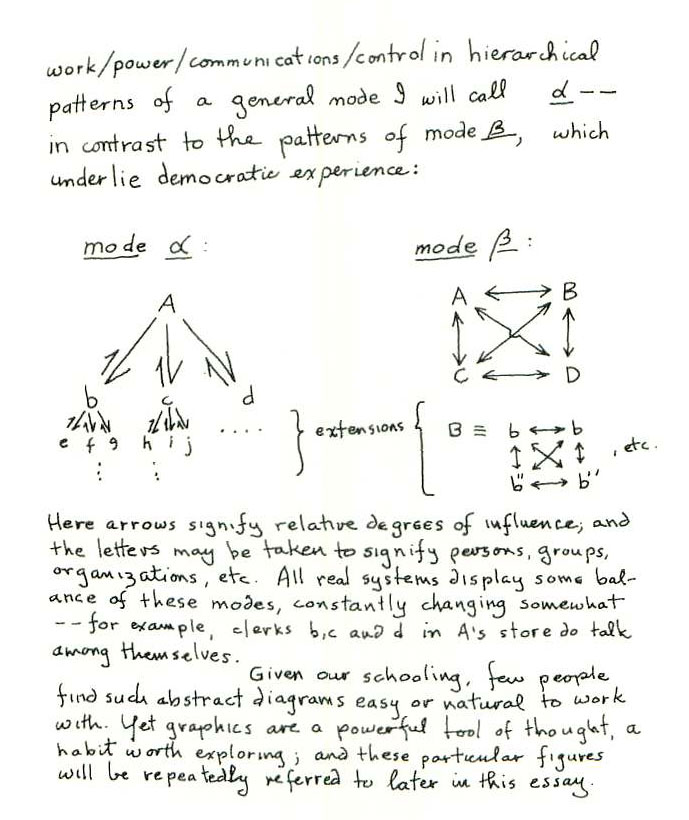A Highly-Abstract Digression
39. The present forms of our productive relationships are governed by the tendency to concentrate power and centralize control. Their development took place within a class society, guided by the interests of private power, during a period when material technologies were more limited in scope, spectrum, and amplification of human effort. Such factors contribute to the organization of our relationship

Work within mode-α forms is more efficient than within mode β forms, in terms of material accomplishment per unit time -- making them attractive and perhaps essential to a culture that must deal with human survival on the edge of material scarcity. Systems of type β are, however, less prone to make mistakes, more flexible in responding to the unexpected, pleasanter to work within, and not experienced as fundamentally oppressive. (Such generalizations start from controlled experiments with problem-solving in small groups and extend by observation up the scale of social size.)
40. Like the Tao-mandala, such diagrams are devices for evoking and focusing concepctual consciousness. As α is a restricted case of β, it associates with a more limited field of concepts. The properties of these figures stem from their topology – or more precisely, from their connectivity. Consider the flow of information in these differing modes, as A emits it, the others respond, and b emits it, the others respond:

Here broken lines indicate information received and retransmitted, and thus subject to blockage, delay and distortion. The connectivity of figure mode-α ensures and expresses the existence of prvileged positions of control and power, which vanish in the play of symmetries of figure β(7).
On the other hand, if you count the arrows, remembering that broken lines represent weaker interactions, the totals for the two sequences reflect the common experience that democracy takes about twice as long.41. The organization of social relationships through such modes is connected at the deepest levels with the authoritarian and democratic tendencies of a culture's psychology and politics. Yet the balance of their expression is in part constrained by material circumstances. Richer technology, in investing us with more than enough power to survive and multiplying the uses of our energy, enables us to shift the balance from α toward β. It does not accomplish that change, nor our choosing to attempt it. But an ample technology in harmonious use is a necessary condition of the democratization of existence.
Go to: Top | Next | OLSC Contents | Home